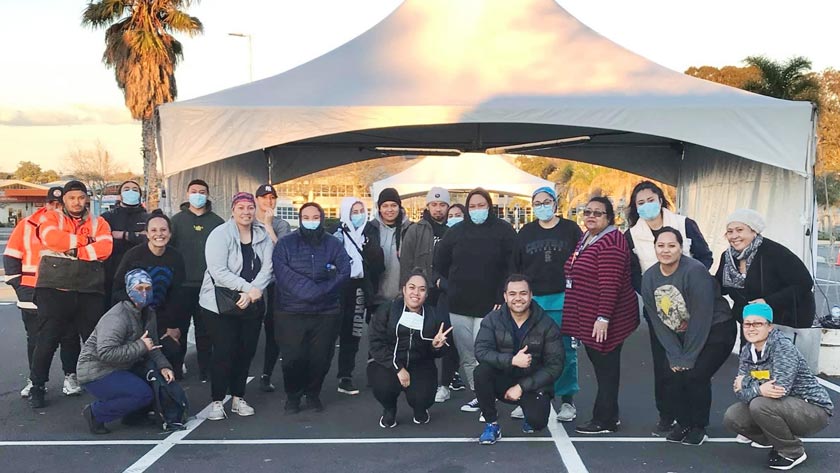New graduate Tina Black shared her experiences on a Māori-led COVID-19 response with the South Pacific Nurses Forum (SPNF) last month.
The biennial forum was the first to be held online, after COVID-19 prevented it being held in the host nation, Vanuatu.
Black described how one week into her new job at Te Whānau-ā-Apanui Community Health in the Bay of Plenty, New Zealand went into level-four lockdown. “I said goodbye to my husband and three children and left home to serve my people and my community.”
Black said her experience felt “unique”, as it was led by local iwi, in partnership with national and local Government and businesses, as well as whānau ora.
“Our community and iwi COVID-19 response were initiated and led by an indigenous approach demonstrating mana motuhake – sovereignty, autonomy and self-determination led by Māori for Māori, in alignment with the Government and Ministry of Health (MoH) guidelines.”
Local tribes placed a rāhui – cultural restrictions – on the area, closing roads. Community “safe zones” were set up and social media used to communicate. Iwi were proactive in protecting a vulnerable population of more than 200 elders in the area. “The loss of them would be catastrophic for our people,” Black said.
The experience highlighted for her the value of connections and support within the Māori community, as well as the health and medical teams and other local services. As a result, the impacts of COVID-19 were minimised.
She realised later how hard the separation had been, “but when you think of the bigger picture and think of the greater good, it gives you some peace in yourself that you made the right choice”.
Clinical nurse director for Auckland’s managed facilities, Pauline Fuimaono Sanders, also acknowledged the importance of leadership and communication in responding to COVID-19. Being familiar with the South Auckland communities during one of the clusters, was helpful when deciding where to locate testing centres and redeploying staff, she said.
Nurses dealt with stress by talking and dancing – “lots of tik-toks”, she said, referring to the popular dance-sharing social media site.
Australian nurses also shared their COVID-19 experiences, Alice Vafo’ou of working in an acute mental health facility in New South Wales and Lynda MacLean of working at the Royal Melbourne Hospital (RMH) and with aged residential care (ARC) homes.

A ‘rollercoaster’
MacLean said COVID-19 had been a “rollercoaster – a very fast one, scary and hard to get off.
“For nurses, one of the most challenging things was how quickly we had to adapt and change to the circumstances and deliver what was required, often with very little notice.”
MacLean’s work included setting up screening centres within hours, and working with public housing towers swabbing thousands of residents. One tower housing more than 500 people went into sudden lockdown with nobody able to enter or leave. “That response highlighted how difficult it is to consider everything when you’re moving at such a fast pace and things are changing, literally hourly.”
When mistakes were made – such as failing to consider the dietary requirements of the Islamic residents of the towers – the community “stepped up and showed us how to get things done”.
Melbourne was divided into four hubs to try to ensure hospitals could support the ARC homes in each. MacLean’s hub had 97 private rest homes, but it was quickly obvious they were “under-prepared and under-resourced”.
Lack of personal protective equipment (PPE) meant hospitals were sending packs to four or five homes every day. But as the outbreaks grew, the Victorian Government stepped in and asked hospitals to manage the ARC facilities. One home lost 80 per cent of staff to either positive COVID-19 tests, close contacts or because staff were too scared to come to work.
Private hospital staff, such as perioperative nurses, were redeployed into rest homes. “Needless to say, we were grossly unprepared for what was coming. It was an incredibly steep learning curve,” she said, which highlighted the importance of communication. “We had to make a team and make it work.”
NZNO kaiwhakahaere Kerri Nuku said the urgency meant “cultural norms took a second seat to the management of the pandemic”.
That meant often “comforting or working alongside or being part of a bereavement when someone was dying was impossible to do”. How to prepare for pandemics without compromising cultural imperatives needed to be considered, she said.
SPNF country reports can be found at: 20th South Pacific Nurses Forum 2020.




